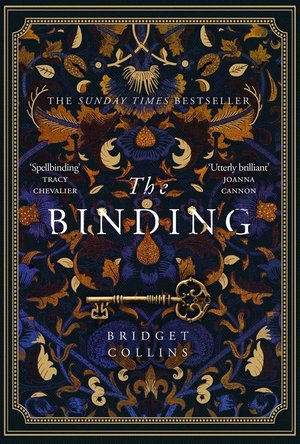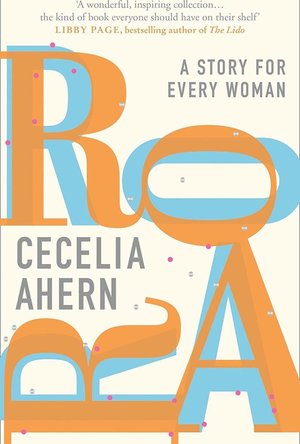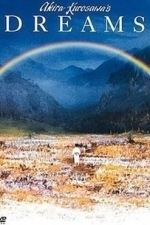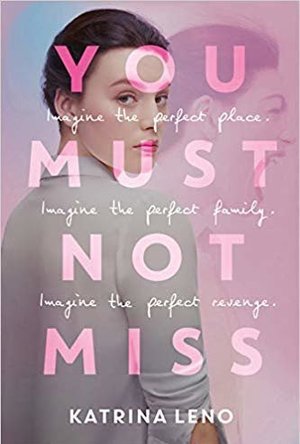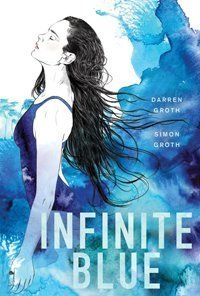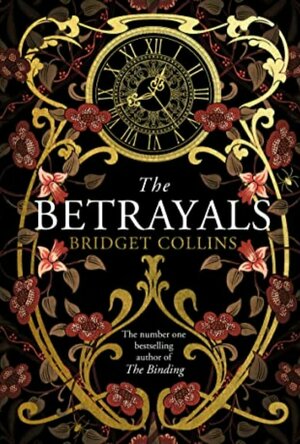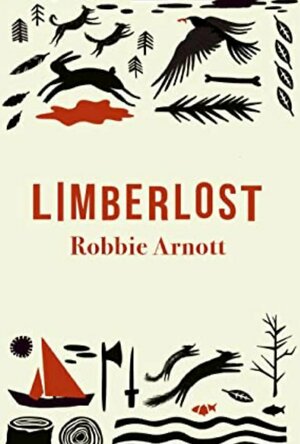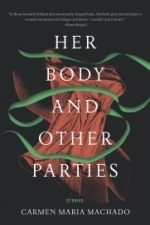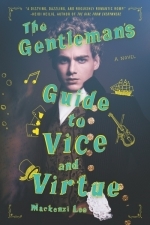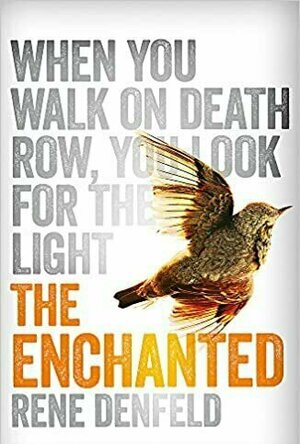Search
Janeeny (200 KP) rated The Binding in Books
May 8, 2019
Emmett is a boy with a gift, he doesn’t realise it but he is a natural ‘Binder’. Binders are people who can take any memory you wish to forget and bind it in a book. So Emmett is sent as an apprentice to a local Binder, but this story isn’t about Binding, this is about Emmett and something he may have forgotten.
I do appreciate a good-looking book, and this is one good looking book. The cover art just draws the eye and the marbling effect on the inside cover is just beautiful. Then you have this little blurb
“Imagine you could erase grief.
Imagine you could remove pain.
Imagine you could hide the darkest, most horrifying secret.
Forever”
Captures the imagination, right?
The Binding is categorized as 'Magical Realism', although it doesn’t totally deliver on it’s promise.
The story starts out around Emmett, and you know there is a deep secret there which will eventually unravel. He is sent to an old Binder as an apprentice to learn the trade, which basically involves laying your hand on the person who wishes to forget as they tell you their memory. That is essentially it for the Binding aspect of the book. This story is predominantly about Emmett and his past, and ‘Binding’ plays a very small part in that. Don’t get me wrong I did really enjoy the direction that the book took, but as somebody in my book club pointed out, we would have liked to know more about The actual Binding and the books. Maybe if Bridget Collins releases more books based around this I may get my wish!
I do appreciate a good-looking book, and this is one good looking book. The cover art just draws the eye and the marbling effect on the inside cover is just beautiful. Then you have this little blurb
“Imagine you could erase grief.
Imagine you could remove pain.
Imagine you could hide the darkest, most horrifying secret.
Forever”
Captures the imagination, right?
The Binding is categorized as 'Magical Realism', although it doesn’t totally deliver on it’s promise.
The story starts out around Emmett, and you know there is a deep secret there which will eventually unravel. He is sent to an old Binder as an apprentice to learn the trade, which basically involves laying your hand on the person who wishes to forget as they tell you their memory. That is essentially it for the Binding aspect of the book. This story is predominantly about Emmett and his past, and ‘Binding’ plays a very small part in that. Don’t get me wrong I did really enjoy the direction that the book took, but as somebody in my book club pointed out, we would have liked to know more about The actual Binding and the books. Maybe if Bridget Collins releases more books based around this I may get my wish!
ClareR (6054 KP) rated Roar: A Story for Every Woman in Books
Nov 13, 2019
On the whole, I enjoyed this book of short stories. They’re all stories about women who are unhappy about some aspect of their lives, have lost their way and are working out how to get back. They’re all a bit magical realism, and just plain fantasy sometimes (this is not a bad thing for me, by the way!), and ‘Feminist Aesop’s Fables’ kept popping in to my head. It’s definitely a book to dip in to, and I did so whilst reading other books - I could see that reading all of these in one go could be overwhelming.
I think that these stories have a bit of something for everyone. I didn’t enjoy all of them, but I did have my favourites: The Woman Who Grew Wings is about a woman who flees her country with her family to live in the West, and the negative attitudes of the other mothers at the school gates (they’re not nice people) - this brought me to tears actually. The Woman Who Was Swallowed Up by the Floor and Who Met Lots of Other Women Down There Too - because who HASN’T had this happen to them at least once in their lives?! The Woman Who Ate Photographs was another tear jerker about how visual prompts (the photos) can bring back feelings connected to smell, touch, and the memories of our children before they grew into hairy teenagers (this one did for me, I’m afraid!).
I think all of these stories will resonate with someone.
Many thanks to NetGalley and the publisher for my copy of this book to read and review.
I think that these stories have a bit of something for everyone. I didn’t enjoy all of them, but I did have my favourites: The Woman Who Grew Wings is about a woman who flees her country with her family to live in the West, and the negative attitudes of the other mothers at the school gates (they’re not nice people) - this brought me to tears actually. The Woman Who Was Swallowed Up by the Floor and Who Met Lots of Other Women Down There Too - because who HASN’T had this happen to them at least once in their lives?! The Woman Who Ate Photographs was another tear jerker about how visual prompts (the photos) can bring back feelings connected to smell, touch, and the memories of our children before they grew into hairy teenagers (this one did for me, I’m afraid!).
I think all of these stories will resonate with someone.
Many thanks to NetGalley and the publisher for my copy of this book to read and review.
Jeff Nichols recommended Dreams (1990) in Movies (curated)
Kristy H (1252 KP) rated You Must Not Miss in Books
Jun 21, 2019
Magpie Lewis has been abandoned. Her father left. Then her sister, Eryn, too. Now it's just Magpie and her mom. Who truly isn't really present, as she drowns herself in booze and a haze of alcoholism. Magpie's sister left the same night as Brandon Phipps's party--after which Magpie's longtime friendship with Allison ended, and Magpie was branded a slut and left to be an outcast at school. So she starts writing in a yellow notebook, creating a world called Near. It's Magpie's magical place, where everything is perfect: no cheating father, no drunk mom, no missing sister, and no horrific school experiences. She thinks up Near so clearly, so fully, that she wills it into existence, and Magpie realizes that in Near, she can have it all: even revenge on those who have hurt her.
"There was one month left of her sophomore year of high school, and she had decided, after a mountain of evidence to support it, that the entire world was a joke."
I just love Katrina Leno, and her beautiful writing. You Must Not Miss is no exception: it's a poetic, stark take on high school friendship, rape culture, and the ties that bind us. The story is a clever variation of "One for Sorrow." Magpie is our main character and takes center stage: it's hard not to feel sympathetic for this poor abandoned girl--with no family who cares for her and, for a while, no friends.
"If you give a name to an impossible thing, does it make the impossible thing any less impossible?
But then the story takes a dramatic, dark twist--as Magpie creates Near both in her mind and in reality--and as Magpie's portal to another world takes true shape, we see our character find strength before our very eyes. I won't lie, I'm not sure this book is for everyone. It reminded me in some ways of a Maggie Stiefvater novel. It's true magical realism, and there's a suspension of disbelief to be had, to be sure. But it's a book that I feel like Leno was meant to be write. Her way of eviscerating rape culture, misogyny, and more is so adept, so searing. It is a call to arms to those who are not believed, who are ignored and mocked, who are the ones who see their lives ruined when the attackers run free.
In this way, You Must Not Miss is a strong, complex book tackling a tough topic. It may be difficult for some that this topic is underneath the magical world of Near, but I liked how that was what Magpie needed to deal with all that happened to her. Beware, this book is brutal at times (and yes, there's a trigger warning for rape/sexual assault). But it's beautifully written, too. It's complicated, much like its subject matter and its protagonist, who is still trying to figure herself out, as well. It's a different read, but if you're willing to give it a try, I think you'll be glad you did. 4 stars.
"There was one month left of her sophomore year of high school, and she had decided, after a mountain of evidence to support it, that the entire world was a joke."
I just love Katrina Leno, and her beautiful writing. You Must Not Miss is no exception: it's a poetic, stark take on high school friendship, rape culture, and the ties that bind us. The story is a clever variation of "One for Sorrow." Magpie is our main character and takes center stage: it's hard not to feel sympathetic for this poor abandoned girl--with no family who cares for her and, for a while, no friends.
"If you give a name to an impossible thing, does it make the impossible thing any less impossible?
But then the story takes a dramatic, dark twist--as Magpie creates Near both in her mind and in reality--and as Magpie's portal to another world takes true shape, we see our character find strength before our very eyes. I won't lie, I'm not sure this book is for everyone. It reminded me in some ways of a Maggie Stiefvater novel. It's true magical realism, and there's a suspension of disbelief to be had, to be sure. But it's a book that I feel like Leno was meant to be write. Her way of eviscerating rape culture, misogyny, and more is so adept, so searing. It is a call to arms to those who are not believed, who are ignored and mocked, who are the ones who see their lives ruined when the attackers run free.
In this way, You Must Not Miss is a strong, complex book tackling a tough topic. It may be difficult for some that this topic is underneath the magical world of Near, but I liked how that was what Magpie needed to deal with all that happened to her. Beware, this book is brutal at times (and yes, there's a trigger warning for rape/sexual assault). But it's beautifully written, too. It's complicated, much like its subject matter and its protagonist, who is still trying to figure herself out, as well. It's a different read, but if you're willing to give it a try, I think you'll be glad you did. 4 stars.
Olivia (102 KP) rated Infinite Blue in Books
Aug 13, 2018
I received an advanced review copy in exchange for an honest review. All thoughts are my own.
What I expected from Infinite Blue was a story about two teens trying to make love work and last. Instead, what I got was a contemporary, magical-realism book about life, love, passion and just how eternal they are.
Infinite Blue is a mystical read that I highly enjoyed. The relationship between our two main characters, Ash and Clayton, was incredibly sweet, the concept of this book felt highly original, and it was quick and easy to read. So, with all that praise, why have I given it a relatively low rating?
Infinite Blue left me wanting more. Unfortunately, not in the traditional "I loved this book and never want it to end! Give me twenty spin-offs of it!" way. The book is only 178 pages long. In that time a lot happens. But so much of it is skimmed over to an extreme extent where I felt I'd only read a third of a book. Yes, all the details a reader need to know are disclosed on paper, but there is practically no build up toward these events. That alone is why I don't feel I can give it a higher rating. The book feels incomplete.
With that being said, Orca Publishing specializes in publishing books for reluctant readers. This is a book I would recommend to reluctant readers ages 12-15. It's very straight to the point so it leaves little room to get distracted and the concept is extremely interesting.
But ultimately, as an avid reader, I found myself a bit let down by how incomplete the book felt as a whole.
What I expected from Infinite Blue was a story about two teens trying to make love work and last. Instead, what I got was a contemporary, magical-realism book about life, love, passion and just how eternal they are.
Infinite Blue is a mystical read that I highly enjoyed. The relationship between our two main characters, Ash and Clayton, was incredibly sweet, the concept of this book felt highly original, and it was quick and easy to read. So, with all that praise, why have I given it a relatively low rating?
Infinite Blue left me wanting more. Unfortunately, not in the traditional "I loved this book and never want it to end! Give me twenty spin-offs of it!" way. The book is only 178 pages long. In that time a lot happens. But so much of it is skimmed over to an extreme extent where I felt I'd only read a third of a book. Yes, all the details a reader need to know are disclosed on paper, but there is practically no build up toward these events. That alone is why I don't feel I can give it a higher rating. The book feels incomplete.
With that being said, Orca Publishing specializes in publishing books for reluctant readers. This is a book I would recommend to reluctant readers ages 12-15. It's very straight to the point so it leaves little room to get distracted and the concept is extremely interesting.
But ultimately, as an avid reader, I found myself a bit let down by how incomplete the book felt as a whole.
ClareR (6054 KP) rated The Betrayals in Books
Dec 14, 2020
Firstly, I should say that The Betrayals is a phenomenal book. It opens up a whole new world to the reader. It brought to mind the type of society that I imagine we would have had under National Socialism: men in charge and better educated than women, women expected to know their place, only state sanctioned religion permitted, and those of other religions or schools of thought are ‘disappeared’. I really would have liked to have read more about this outside world, but I don’t feel short changed at only having read about what happens within the confines of Montverre. It is strange actually, that such a major part of Montverre, the grand jeu, is never explicitly talked about. We get the impression as a reader that it’s a performance consisting of maths, music, philosophy and state sanctioned religion. It’s held in extremely high regard: studying it is a sure fire open door to a position of power afterwards.
So what IS The Betrayals about? Well, betrayal, actually. Everyone is backstabbing and lying to everyone else in this book, and they’re lucky if they live to regret it. It’s the cloistered version of Dallas (with less sex)! I loved it. This was a hard book to put down, and one I steamed through far too quickly. This ticks a lot of boxes for me: historical fantasy (double whammy straight away), a mystery to solve, dystopian and a smattering of magical realism. I’m glad it looks like a book that could have a sequel - even if it never as one. It leaves the reader able to make up their own next moves (yes, I do that).
Huge thanks to the publisher for providing me with a NetGalley copy of this book - it was one of my reading highlights of 2020.
So what IS The Betrayals about? Well, betrayal, actually. Everyone is backstabbing and lying to everyone else in this book, and they’re lucky if they live to regret it. It’s the cloistered version of Dallas (with less sex)! I loved it. This was a hard book to put down, and one I steamed through far too quickly. This ticks a lot of boxes for me: historical fantasy (double whammy straight away), a mystery to solve, dystopian and a smattering of magical realism. I’m glad it looks like a book that could have a sequel - even if it never as one. It leaves the reader able to make up their own next moves (yes, I do that).
Huge thanks to the publisher for providing me with a NetGalley copy of this book - it was one of my reading highlights of 2020.
ClareR (6054 KP) rated Limberlost in Books
Oct 22, 2023
Limberlost is yet another beautiful novel from Robbie Arnott. There’s less of the magical realism in this, yet there’s still the beauty and magic of the natural world.
Limberlost is a place. It’s the orchard belonging to Ned West’s family; but all Ned can think about is sailing in a boat of his own, far from life in Limberlost.
The story moves back and forth between Ned’s childhood and his adulthood. Ned’s older brothers go away to fight in WW2, and he lives with his father and older sister. Their lives revolve around worry for the brothers and the apple crop. Ned is struggling as the brother left behind, so he decides to trap rabbits and sell their fur in order to buy his own boat. When he accidentally traps a quoll, only he and Callie (who lives on the next farm and is his best friend Jackbirds sister) know. He decides to nurse it back to health.
Ned’s childhood is seen through three significant moments: the capture of the quoll, the rebuilding of a Huon pine boat, and years before when his father borrowed a boat and took his children out to look at the whales.
Many years later, Ned still remembers these moments.
It was interesting (and sobering) to read about mans, and Neds, impact on the land: how his crop spraying may have been the cause of his wife’s cancer, and how colonisation was the reason why the orchard was his and not the native people’s anymore.
This is such a gentle, gorgeously written novel, and utterly devastating in parts. Even the description of Ned sanding his boat was told with such tenderness - the reader is there, inhaling the scent of pine.
This is yet another utterly entrancing novel from Robbie Arnott. I’m most definitely a fan.
Limberlost is a place. It’s the orchard belonging to Ned West’s family; but all Ned can think about is sailing in a boat of his own, far from life in Limberlost.
The story moves back and forth between Ned’s childhood and his adulthood. Ned’s older brothers go away to fight in WW2, and he lives with his father and older sister. Their lives revolve around worry for the brothers and the apple crop. Ned is struggling as the brother left behind, so he decides to trap rabbits and sell their fur in order to buy his own boat. When he accidentally traps a quoll, only he and Callie (who lives on the next farm and is his best friend Jackbirds sister) know. He decides to nurse it back to health.
Ned’s childhood is seen through three significant moments: the capture of the quoll, the rebuilding of a Huon pine boat, and years before when his father borrowed a boat and took his children out to look at the whales.
Many years later, Ned still remembers these moments.
It was interesting (and sobering) to read about mans, and Neds, impact on the land: how his crop spraying may have been the cause of his wife’s cancer, and how colonisation was the reason why the orchard was his and not the native people’s anymore.
This is such a gentle, gorgeously written novel, and utterly devastating in parts. Even the description of Ned sanding his boat was told with such tenderness - the reader is there, inhaling the scent of pine.
This is yet another utterly entrancing novel from Robbie Arnott. I’m most definitely a fan.
Goddess in the Stacks (553 KP) rated Her Body and Other Parties: Stories in Books
Sep 9, 2018
This is another book off my Wronged Women list - women who have been part of the #metoo movement. Specifically the ones that have come out against Junot Diaz and Sherman Alexie, but I hope to expand it to others as well. Her Body and Other Parties is a collection of eight surreal stories. Magical Realism is probably the best categorization for them, as they're not really fantasy. Real World stories with a touch of magic, or events that we're not sure whether they could be magic or are just in the narrator's head.
The Husband Stitch is the first story, and it's a retelling of an old children's story that I recently saw being discussed on Twitter - the one with the woman who had a green ribbon tied around her neck. Her husband always wanted to ask about it, but she refused to answer any questions about it, and wouldn't let him touch it until she was on her deathbed. In Machado's version, it isn't just the narrator that has one. Every woman does. It's different colors, in different places, but it's still never talked about. I think she means it as a metaphor for trauma. It works well.
Eight Bites is a particularly haunting piece about self-hate, body acceptance, and peer pressure. It's probably my second favorite story after The Husband Stitch.
The only one I didn't love was Especially Heinous. It was written as episode synopses of a television show, and it was interesting, but it just went on too long.
All of the stories are written well, though, and each one makes a different point. I think this would make an amazing Book Club book, because I'd love to discuss the meanings of the stories with other people. Other women, specifically. It would definitely be a great book for discussion.
You can find all my reviews at http://goddessinthestacks.com
The Husband Stitch is the first story, and it's a retelling of an old children's story that I recently saw being discussed on Twitter - the one with the woman who had a green ribbon tied around her neck. Her husband always wanted to ask about it, but she refused to answer any questions about it, and wouldn't let him touch it until she was on her deathbed. In Machado's version, it isn't just the narrator that has one. Every woman does. It's different colors, in different places, but it's still never talked about. I think she means it as a metaphor for trauma. It works well.
Eight Bites is a particularly haunting piece about self-hate, body acceptance, and peer pressure. It's probably my second favorite story after The Husband Stitch.
The only one I didn't love was Especially Heinous. It was written as episode synopses of a television show, and it was interesting, but it just went on too long.
All of the stories are written well, though, and each one makes a different point. I think this would make an amazing Book Club book, because I'd love to discuss the meanings of the stories with other people. Other women, specifically. It would definitely be a great book for discussion.
You can find all my reviews at http://goddessinthestacks.com
Goddess in the Stacks (553 KP) rated Gentleman's Guide To Vice And Virtue in Books
Dec 25, 2018
I have been eagerly awaiting this sequel to The Gentleman's Guide to Vice and Virtue, and it did not disappoint! In The Lady's Guide we continue the story of the Montague siblings, with the book opening on Felicity showing up at her brother's flat in London while she figures out how to get into medical school. I love the sibling relationship between these two, and Felicity's friendship with Monty's partner Percy. The three of them just make an amazing little group, so supportive and understanding of each other.
Felicity strongly hinted at being asexual in The Gentleman's Guide, and through the course of this book, that is cemented. Even when she comes to care for someone, sex just...isn't her thing. Romance isn't really either, making her both asexual and aromantic. It's fantastic representation for an identity we don't see very often in books. Or, perhaps, an identity we don't see explicitly mentioned in fiction. Many books don't have romantic plots and just don't investigate that aspect of their characters, but to investigate that aspect of a character and say NO, they are NOT interested in that is unique.
Similar to The Gentleman's Guide, this is an adventure story. Unexpectedly, we veered into magical realism in this book, with the existence of some fantastical creatures I wasn't expecting to see. Nothing about The Gentleman's Guide had implied that the world they inhabited was not exactly ours, but The Lady's Guide does deviate. So that was a big surprise, and I'm not sure I like it. It felt a little forced. I think the "secret" that someone was protecting could have been written as something real instead of a fantastic creature.
That minor quibble aside, I really loved this book, just like I did the first. These two are GREAT books, and the characters are outstanding.
You can read all my reviews at http://goddessinthestacks.com
Felicity strongly hinted at being asexual in The Gentleman's Guide, and through the course of this book, that is cemented. Even when she comes to care for someone, sex just...isn't her thing. Romance isn't really either, making her both asexual and aromantic. It's fantastic representation for an identity we don't see very often in books. Or, perhaps, an identity we don't see explicitly mentioned in fiction. Many books don't have romantic plots and just don't investigate that aspect of their characters, but to investigate that aspect of a character and say NO, they are NOT interested in that is unique.
Similar to The Gentleman's Guide, this is an adventure story. Unexpectedly, we veered into magical realism in this book, with the existence of some fantastical creatures I wasn't expecting to see. Nothing about The Gentleman's Guide had implied that the world they inhabited was not exactly ours, but The Lady's Guide does deviate. So that was a big surprise, and I'm not sure I like it. It felt a little forced. I think the "secret" that someone was protecting could have been written as something real instead of a fantastic creature.
That minor quibble aside, I really loved this book, just like I did the first. These two are GREAT books, and the characters are outstanding.
You can read all my reviews at http://goddessinthestacks.com
Alice (117 KP) rated The Enchanted in Books
Mar 3, 2021
<b>4.5 stars</b> (I may change this in the future but for now let's leave it at this)
My rating for this book is slightly confused because I went through a vast majority of the book feeling. "hey this book is really good I'm so glad it was recommended to me" but <i>only</i> feeling that. It didn't get me excited but it was still very, very good. However, the last couple of pages had such a huge impact and it really made the whole story come alive which meant I gave it the extra 0.5 for the pure sense of awe I felt after finishing.
When you read the title "The Enchanted" you expect it to be about fairies or some other sort of magical creature, the last thing that you expect is a book about a prisoner on death row but let me just say that this book is a gem. The language (especially as a debut novel) is exquisite. The use of metaphors and flowery almost pretty language juxtaposed perfectly to describe the scenes which should be gruesome and dark emphasising with the magic-realism style of the novel. Having the entire story told from the inmate's point of view made for an interesting read too because he was narrating the others' thoughts, so the only parts we know to be true are the things that he himself thought. As I mentioned above, the whole story is development, even as I was nearing the end no part truly felt like the climax.
All in all, I highly recommend this book even if you only read it for how beautiful the language is ( that's pretty much what inspired me to read it), it deals with harsh subject matters in a really raw way and makes you think and you will likely leave with more questions than with which you entered.
My rating for this book is slightly confused because I went through a vast majority of the book feeling. "hey this book is really good I'm so glad it was recommended to me" but <i>only</i> feeling that. It didn't get me excited but it was still very, very good. However, the last couple of pages had such a huge impact and it really made the whole story come alive which meant I gave it the extra 0.5 for the pure sense of awe I felt after finishing.
When you read the title "The Enchanted" you expect it to be about fairies or some other sort of magical creature, the last thing that you expect is a book about a prisoner on death row but let me just say that this book is a gem. The language (especially as a debut novel) is exquisite. The use of metaphors and flowery almost pretty language juxtaposed perfectly to describe the scenes which should be gruesome and dark emphasising with the magic-realism style of the novel. Having the entire story told from the inmate's point of view made for an interesting read too because he was narrating the others' thoughts, so the only parts we know to be true are the things that he himself thought. As I mentioned above, the whole story is development, even as I was nearing the end no part truly felt like the climax.
All in all, I highly recommend this book even if you only read it for how beautiful the language is ( that's pretty much what inspired me to read it), it deals with harsh subject matters in a really raw way and makes you think and you will likely leave with more questions than with which you entered.
